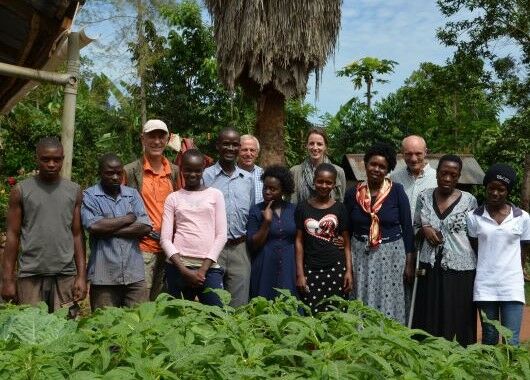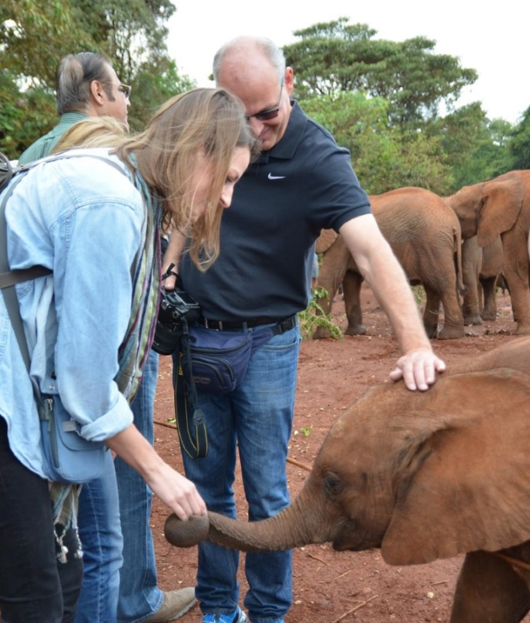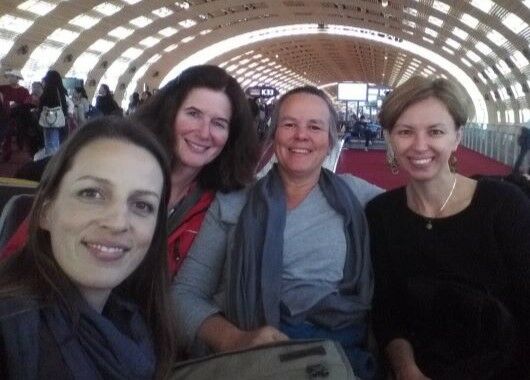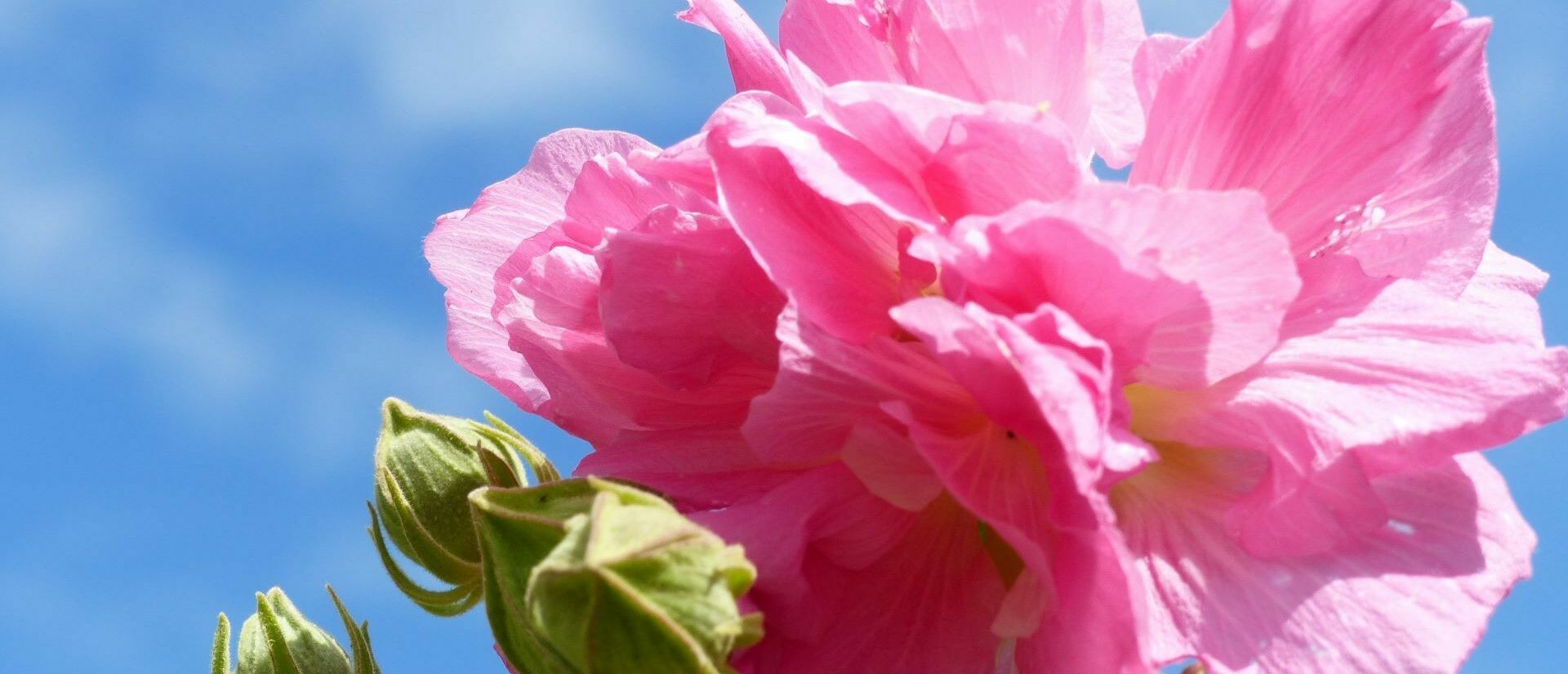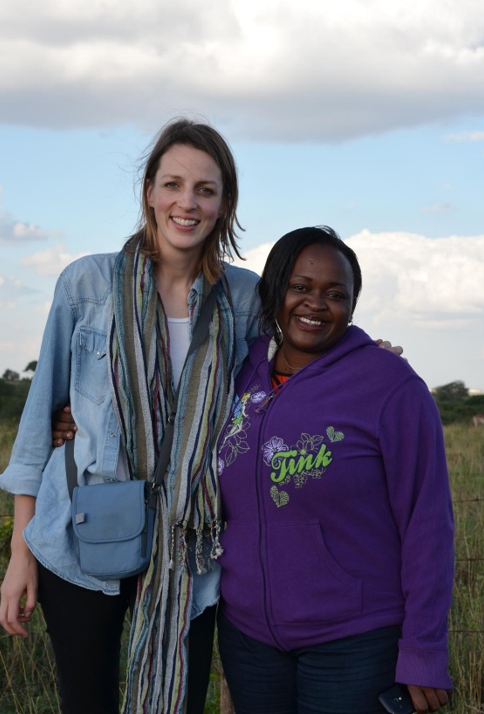Julia Maria Feldhausen - †15.12.2024
Julia Maria Feldhausen +15.12.2024
Julia began working with the Zukunftsstiftung Entwicklung in September 2015, having applied for the position of project coordinator with a focus on Latin America.
Julia brought with her one and a half years of experience working for Welthungerhilfe in Cuba on ecological agriculture and a deep passion for the island—a point where we connected from the very beginning. When Julia began her work, she approached project partners and their initiatives with a delicate, sensitive, compassionate, and empathetic manner.
I had no idea at the time that she was also uncompromisingly straightforward and resilient. Nonetheless, the fact that following her studies in Latin American Studies, she devoted a prolonged period to working in gastronomy as a result of not initially securing the job she desired and refusing to compromise, hints at her unwavering determination.
In 2015, Julia moved to Bochum and threw herself into her work. Back then, the foundation was smaller, and there were fewer distinctions within project coordination. Although her primary focus was on supporting Latin American project partners, there was also the expectation that she would get to know all the foundation’s partners. Soon after, her responsibilities expanded to include partners in Africa.
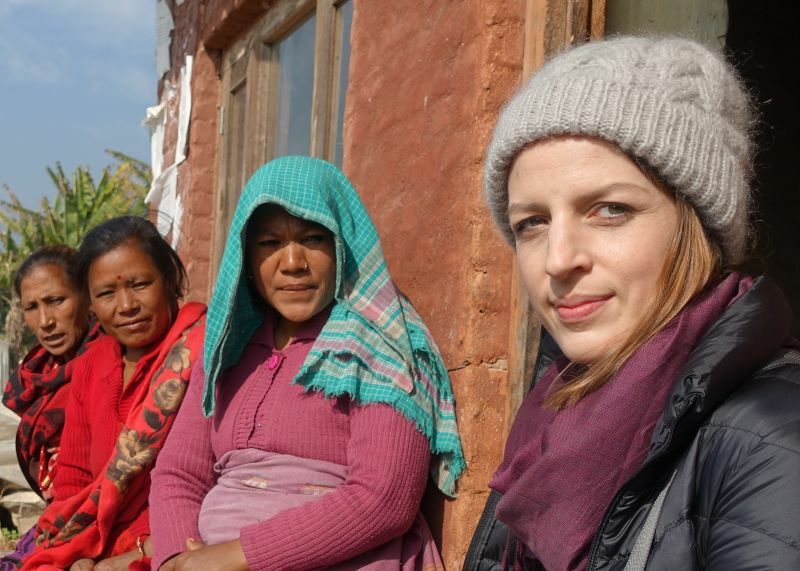
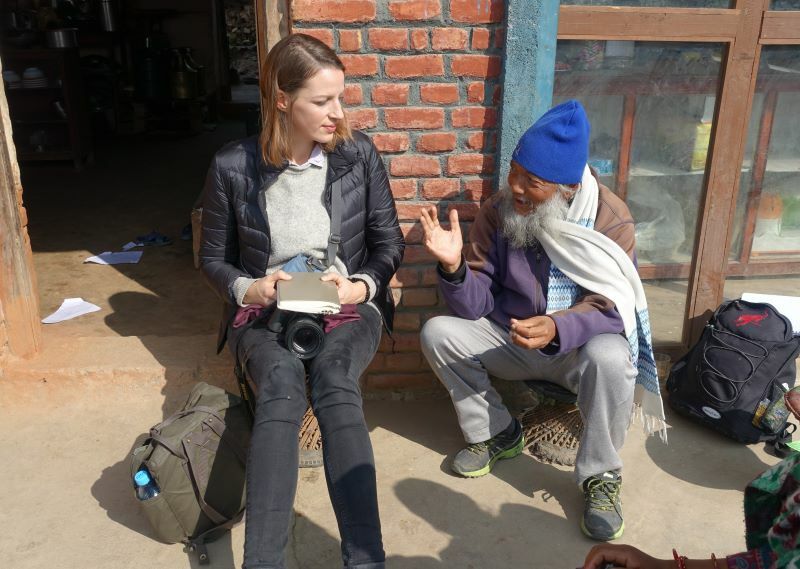
In 2018, we traveled together to Peru. In the northern high Andes, Julia suffered from altitude sickness (Soroche). That day, we had visited a village at around 3,500 meters and later descended the mountain roads slowly through rain and fog. By the time we got out of the car that evening, Julia was already feeling very unwell. During the night, she knocked on my door. I was at a loss, prepared her a hot water bottle, gave her coca leaves, bundled her into my bed, and ran through San Marcos searching for a doctor. There wasn’t one—just a small health station with an oxygen tank. Using a motorcycle rickshaw, I transported Julia to the station, where she received oxygen while the nurse made fun of us, saying it was no wonder she got sick and questioning why we thought it was a good idea to trek up and down the mountains without acclimatizing.
With great difficulty, we got Julia to Lima. She flew home immediately and had to recover. That trip to Peru seemed to accelerate her decisions: Julia moved back to Cologne and began working partly from home.
In Kenya, Julia supported projects in the southern part of the country. Many Maasai were fascinated by her—finally, a Muzungu (foreigner) of striking stature: tall, elegant, and graceful. They also greatly appreciated Julia’s expertise in project coordination.
In 2019, Julia was elected to represent the staff on the foundation's board. From 2020, she also became involved in the legal restructuring of the foundation into an independent entity. This was an intense and challenging period. Julia’s clarity, unwavering pragmatism, and straightforwardness were immensely helpful. Over time, it became clear that I could discuss all foundation matters with her.
In the spring of 2020, shortly before the outbreak of the COVID-19 pandemic, Julia traveled for the last time, this time to Nepal. Thankfully, she returned just in time.
For a long time, Julia had dreamed of becoming a mother. Her pregnancy coincided with the pandemic. Using the photographic skills she typically displayed during project trips, she documented the journey of becoming a mother to Romy Matilda, her beloved daughter.
After her parental leave, Julia increasingly took on coordinating tasks in project management. She also advised other project coordinators on complex initiatives funded by the Federal Ministry for Economic Cooperation and Development (BMZ).
In January 2024, Julia began lamenting that everyone in her family seemed to constantly be sick. Romy developed pneumonia, and later it was suspected that Julia herself had pneumonia. By February and March, she felt that she needed a break. She thought of taking four weeks off; I thought she needed a retreat of at least three months. Amid this situation, she called me and said: “Annette, I’ve really hit rock bottom. I have cancer.”
She was diagnosed with a brain tumor, as well as tumors in her lungs and liver, followed later by metastases in her hip and lymph nodes. The diagnosis shifted over time: while some tumors responded to radiation, they did not respond to chemotherapy or immunotherapy. The treatments had extreme side effects.
On July 11, Julia married her husband Simon on a beautiful sunny day in Cologne. The proposal had brought her immense joy. During the wedding reception, Simon remarked that in recent months, they had been surrounded by such loving support from so many people that they felt carried on a wave of affection, care, and love—something they had never experienced so intensely before.
Julia was incredibly clear-headed during this time, resolute. She sought the support of a grief counselor who guided her, Simon, and their daughter Romy Matilda. With patience and care, Julia recorded a family audiobook, which she completed in mid-October.
She appreciated living just five minutes from the hospital, allowing Simon and Romy to visit her frequently. Family members took turns always staying with her.
Last Wednesday, Julia could no longer bear the pain. She was to receive a morphine pump in the palliative care unit. Simon hoped they would still celebrate Christmas together. On Saturday morning, the doctors informed him that Julia likely wouldn’t make it through the weekend. Julia passed away at 5 a.m. on Sunday morning, surrounded by her loved ones.
Julia is deeply missed—both as a person and within the foundation — her attitude, expertise, humor, pragmatic clarity, and boundless love.
Annette Massmann, December 16, 2024
